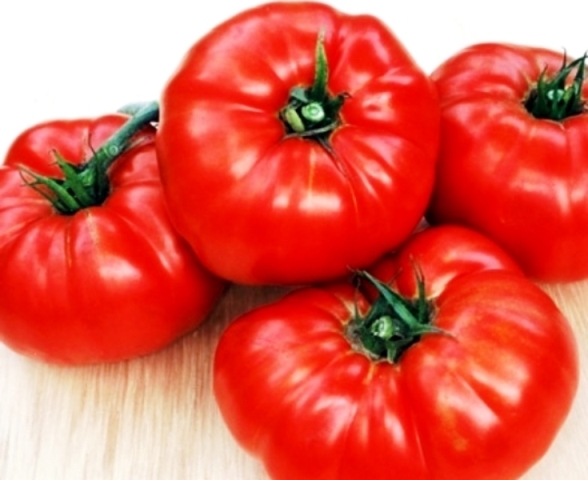Gardeners who do not have adequate experience in the cultivation of tomato crops, tend to choose for themselves plants that do not have high requirements for grooming. One of such examples is considered to be a bear bear tomato, specially bred for consumers who prefer large fruits. Further we will talk about the description and characteristics of this variety.
Table of contents
Description and characteristics of tomato bear paw
Tomatoes ripen for three and a half - four months. The main stem in the growth is not limited, so that throughout the season, tomato bushes will have to constantly pinch. Experienced gardeners are advised to carry out the formation of bushes in one - two stems, timely tying them to support columns.
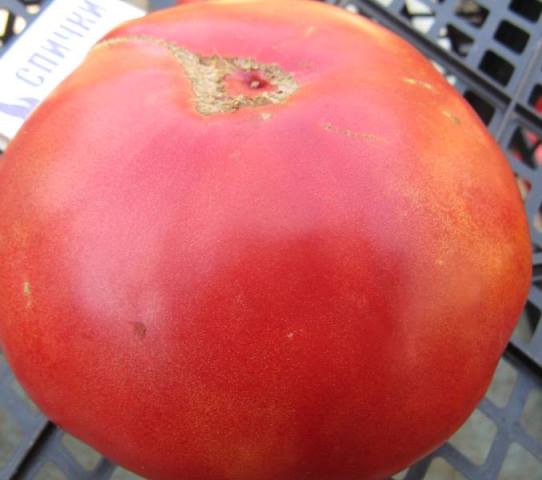
The plant is intended for cultivation in greenhouses and in conditions of open ground, if climatic conditions allow. Twenty-five to thirty brushes form on each bush. The fruits are large, reaching eight hundred grams, but in most cases their average weight ranges from three hundred to four hundred grams.
Vegetable rounded, bright red. The flesh is sugary, there is little seed in the cells.
Tomatoes are recommended primarily for fresh consumption because of its fragrant taste. The flesh is good in soups, dips and sauces.Tomato juice is prepared, able to retain its beneficial properties for a long time.
Foliage plants normal, green, looks like a bear's paw. Tomato bushes perfectly tolerate the dry season.
Natural growth region and cultivation features in other regions
recommended plant for cultivation in areas with temperate or warm climates. For colder locations, the tomato plant is intended for growing exclusively in greenhouse conditions.
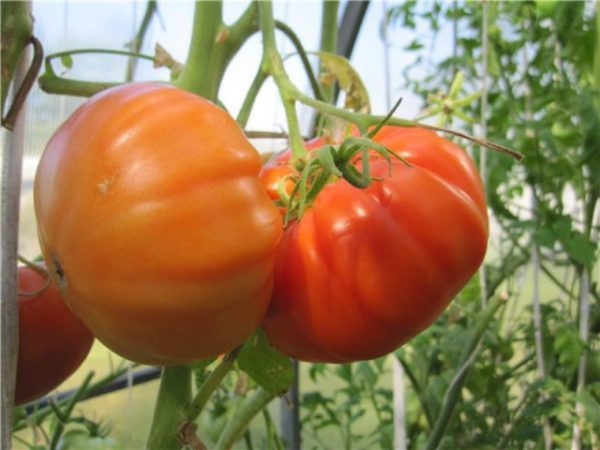
Advantages and disadvantages
Like other tomato cultures, the variety has its advantages, including:
- excellent resistance to lack of moisture;
- the size of the fruit, their commercial quality;
- excellent yield of the plant;
- resistance to a large number of diseases inherent solanaceous;
- taste great.
The disadvantages include spreading bushes in need of strong supports.Some gardeners note the sourness of the vegetable, which is not pleasant to all consumers.
Sowing seeds for seedlings
Consider the option of growing tomato culture seedling method.
You can sow in special boxes or in peat tablets or cups. The soil composition should be mixed from garden soil, peat, sand and humus;
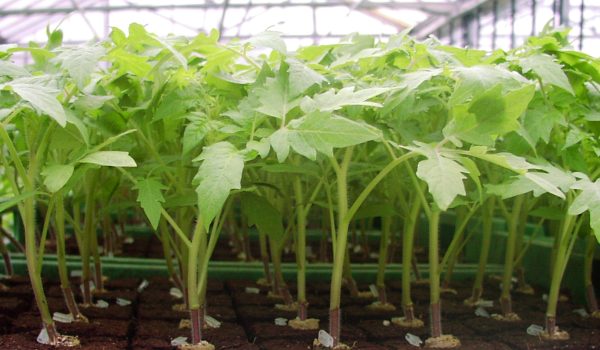
It is best to plant seeds in March. They are pre-tested for germination and disinfected. Planting is carried out in a moist soil, the containers are covered with plastic wrap, placed in a warm room. Approximately in a week shoots appear. At this time, the seedlings are revealed and transferred to the window sill.
Post-treatment care
Watered sprouts with warm water. Picks perform after the formation of the third true leaves. During the growth, the seedlings are fed with complex fertilizer compositions, quenched to transplant to a permanent place.
Transplantation of tomatoes in open ground
This should be done not earlier than the seedlings will be two months old.As a rule, this period falls on the second half of May, when the soil in the garden beds warms up well. The soil is loosened, the wells are being prepared, in which complex mineral compositions are laid at the rate of one spoon per bush.
The landing pattern will be the most optimal if you place no more than three seedlings on one square meter. With too thick plantings will cause illness and lower yields. Ends planting installation of supports and tying bushes.
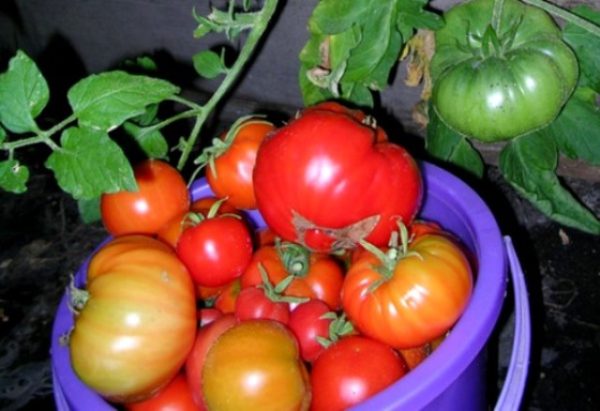
Grade care after transplanting
It is possible to water plants not often, but rather plentifully, using warm water.
Periodically, the soil should be loosened, removing weeds.
For the period of growth, tomato bushes are fed three to four times. At the same time, mineral fertilizers alternate with organic matter. Before the beginning of flowering, nitrogen-containing complexes are introduced, after the formation of the ovary, plants will need potassium and phosphorus. If the nutrients are not enough, the yield of the crop will decrease markedly.
Features fruiting varieties
Obligatory condition - staving throughout the growth period. When watering, the soil should be mulched right away using dry nettles or pine needles. Weeding is carried out when the weeds reach a height of fifteen centimeters. Care must be taken not to damage the root system of tomato bushes.
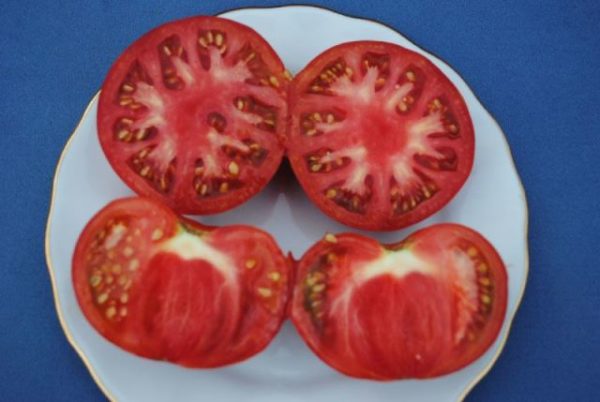
Diseases and their prevention
The plant at its genetic level is already reliably protected from a large number of diseases, but preventive measures will not be superfluous. When planting, the soil composition must be spilled with manganese solution.
From the Colorado potato beetle, tomato bushes are processed with ammonia in water diluted in water. Aphids can be won by spraying the foliage with soapy water. Insects will disappear if you use chemicals. But they must be applied before the bushes form the ovary.
This tomato plant can be a good choice for your garden. Large and juicy fruits will decorate your table. Fulfilling all the rules of care, you will receive an excellent harvest of delicious vegetables.
